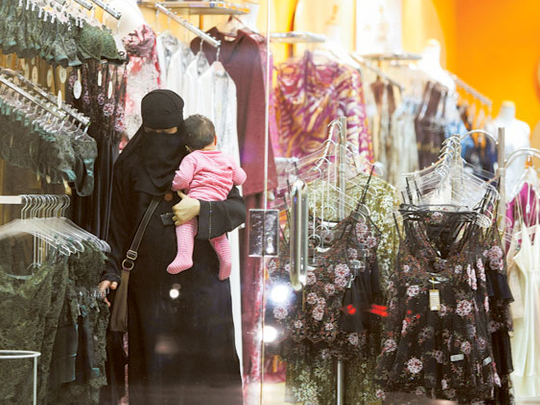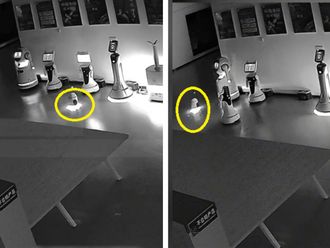
Dubai: Beginning today, only Saudi women are allowed to work in cosmetics and perfume shops across Saudi Arabia.
The move, which comes as part of the second phase of a plan by the Ministry of Labour to employ only women in retail shops, is expected to provide thousands of job opportunities for women in the age range of 18 up to 60 years old. The measure covers all types of shops located in shopping malls and souks.
“Women are more familiar with cosmetics than men. They know more of types and colours of skin,” said Masha’al Al Shamari, head of the communication centre at the Saudi labour ministry.
“Women will be dealing with women. They would feel more comfortable than dealing with men, especially when they are buying lingerie,” she told Gulf News, in reference to the six-month-old regulation requiring lingerie shops to hire only women employees.
Employers have two options ahead of implementing the new regulations for cosmetics and perfumes shop, she added.
“First, the owner of the business could hire women employees through the Human Resources Development Fund, which in this case will pay half of the employee salary. And the second option is to advertise for job vacancies in different advertisement means,” Masha’al added.
The minimum wage set by the Ministry of Labour is 3,000 riyal (Dh2,937) per month.
In case an employee was hired through the HRD Fund, 50 percent of her salary will be paid for by the fund for three years.
Prior to the implementation of the new regulations, several initiatives were implemented to train the women who are seeking employment in cosmetic and perfume shops.
As the new regulation comes into effect, the labour ministry will carry out inspections.
“Shops that don’t abide with the new laws will be punished by stopping all services provided by the Ministry of Labour,” Masha’al said. These services include issuing license and working permits to employees. The ministry also warned employers against producing fraudulent contacts and false hiring.
The punishment will also be applied on “fake” women employees.
Saudi authorities carried inspections visits to nearly 7,300 lingerie shops across the country after these places were declared off limits to male employees in January 5, 2012, press reports said.
The initiative is expected to create job opportunities to nearly 44,000 women, according to the labour ministry’s estimates. Within the next two to three years, hiring females in women retails shops will offer nearly 500, 000 job opportunities, experts were quoted as saying in the Saudi press.
Nearly 60 per cent of women seeking jobs in retails shops were motived by psychological pressures due to their stay at home for long time, a study conducted by the Chamber of Commerce and Industry in Jeddah concluded.
Reasons for the rest 40 percent include improving families’ living conditions, earning an income and looking at it as the first step towards having their own business in the future, the same study added.
On the other hand, late working hours is among the main reason behind stopping their daughters from working in shops.
With nearly 24.9 per cent, unemployment rate among Saudi women is nearly three times higher than that among Saudi men, according to an economic report entitled “The Saudi Woman- a catalyst for change.”
The percentage of women in the private sector in the ultra-conservative Saudi society is less than one per cent, despite the fact that nearly 93 per cent of Saudi women are holding secondary or university degrees, it added.
In 2007, 85.6 per cent of the nationals in Saudi Arabia’s labour force were men. Women in the labour force had an unemployment rate of 26.9 per cent—nearly four times that of men, noted another study.











